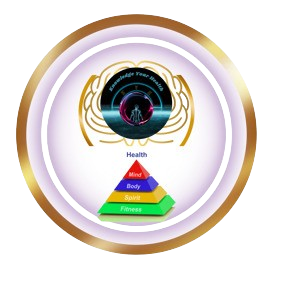Are allergies making your life miserable? It’s time to stop merely treating the symptoms and start understanding the root causes behind your reactions. In this blog post, we’ll explore how diving into in-depth knowledge about allergies can revolutionise your experience, from identifying triggers to finding effective solutions. Say goodbye to sneezing fits and itchy eyes – let’s take control of your allergy journey together.
Understanding Allergies: Types and Causes
Allergies are a common occurrence, affecting millions of people worldwide. Yet, despite their prevalence, many individuals struggle to understand the complexities behind allergies. In order to truly transform your allergy experience, it is crucial to have an in-depth knowledge of the types and causes of allergies.
Types of Allergies
There are various types of allergies that can affect individuals differently. The most well-known type is food allergies, which occur when your immune system reacts negatively to certain edible substances such as nuts, eggs, or dairy products. These reactions can range from mild discomfort to severe and life-threatening symptoms.
Another type of allergy is seasonal allergies, also known as hay fever or allergic rhinitis. This occurs when allergens such as pollen from trees, grasses, and weeds trigger an immune response in the nose and sinuses leading to symptoms like sneezing, runny nose, and itchy eyes.
Furthermore, there are also skin allergies that can be triggered by contact with particular substances like latex or certain metals found in jewelry. These reactions may result in redness, itching, hives or rashes on the skin.
Causes of Allergies
The exact cause behind why some individuals develop allergies while others don’t is still not fully understood. However, genetics play a significant role in predisposing someone towards developing allergies. If one parent has an allergy then there’s a 30% chance their child will have an allergy too; if both parents have an allergy then this increases to 60%.
Moreover, environmental factors such as pollution and exposure to toxins can also contribute to the development of allergies. For instance, living in cities with high levels of air pollution has been linked with higher rates of respiratory allergies.
One theory called the ‘hygiene hypothesis’ suggests that our modern lifestyle promotes excessive cleanliness which weakens our immune system’s ability to fight off infections leading us to become more susceptible to allergies. This may explain why children who grow up in rural areas, surrounded by animals and bacteria, tend to have a lower risk of developing allergies.
In addition, food allergies can also be triggered by a combination of factors such as genetics, exposure to allergens early in life, and changes in the gut microbiome. It is still an area of ongoing research and much remains unknown about the causes of allergies.
Understanding the different types and causes of allergies is essential for managing and transforming your allergy experience. By having an in-depth knowledge, you can make informed decisions about your health and work with your doctor to find suitable solutions that fit your individual needs.
Do visit more about allergy topics.
Common Symptoms of Allergies
Allergies are a common health issue that affects millions of people worldwide. They occur when our immune system overreacts to harmless substances such as pollen, dust, or pet dander, triggering an allergic reaction. While allergies may vary in severity and triggers from person to person, there are some common symptoms that most people experience.
- Sneezing and Runny Nose
One of the first signs of an allergic reaction is sneezing and a runny nose. When exposed to allergens, the body produces a chemical called histamine which causes these symptoms. Sneezing helps to expel the allergens from the body while a runny nose is our body’s way of trying to flush out the irritants. - Watery and Itchy Eyes
Itchy and watery eyes are another common symptom of allergies, especially for those who suffer from seasonal allergies like hay fever. The exposure to pollen or mold triggers our body’s release of histamine which can cause itching, redness, swelling and excessive tear production in our eyes. - Skin Reactions
Allergic reactions can also manifest on our skin with symptoms like redness, hives or eczema flare-up being common complaints amongst allergy sufferers. These reactions occur due to direct contact with an allergen such as certain metals in jewelry or chemicals in cosmetics. - Coughing and Wheezing
Some allergies can affect our respiratory system causing coughing fits or wheezing – a high-pitched sound while breathing caused by narrowing airways due to inflammation triggered by an allergen. - Fatigue While not commonly associated with allergies fatigue is often experienced during allergy season as it takes energy for your body to fight off histamines released during an allergic reaction.
6.Swelling
Swelling typically occurs upon contact with certain allergens such as insect bites/stings or some food related allergies. Swelling can range from mild to severe and even life-threatening in some situations, so it is important to seek medical attention if you experience any swelling alongside other allergy symptoms.
Being aware of these common allergy symptoms can help us identify and manage our allergies effectively. If you experience any of these symptoms regularly, it is recommended that you consult an allergist for proper diagnosis and treatment options. With the right knowledge and understanding, we can transform our allergy experience from one of discomfort to one of control.
The Importance of In-Depth Knowledge in Managing Allergies
Allergies are a common condition that affects millions of people worldwide. They can range from mild inconvenience to life-threatening reactions, making it crucial to effectively manage and understand them. In order to do so, having in-depth knowledge about allergies is essential.
First and foremost, understanding the triggers of an allergic reaction is crucial in managing allergies. Allergies can be triggered by a variety of factors such as food, pollen, dust mites, or pet dander. These triggers can vary among individuals and identifying them can be challenging without proper knowledge. With the help of in-depth knowledge, one can identify their specific allergens and take necessary precautions to avoid exposure.
Moreover, understanding the symptoms of allergies is equally important. Allergic reactions manifest differently in different individuals; some may experience skin rashes while others may suffer from respiratory issues. Knowing these symptoms is vital in early detection and treatment of allergies. In-depth knowledge also plays a crucial role in distinguishing between allergy symptoms and those caused by other illnesses.
Another significant aspect where in-depth knowledge comes into play is in selecting appropriate treatment options for allergies. With the plethora of over-the-counter medications available, it can be overwhelming to decide which one would be most effective for your specific allergy type and severity. Having extensive knowledge about the various treatment options allows you to make informed decisions regarding your healthcare.
Furthermore, being knowledgeable about potential cross-reactive allergens can prevent unexpected allergic reactions. For instance, if someone has an allergy to birch pollen, they may also develop allergic responses towards certain fruits like apples or peaches due to similar proteins present in both these items. Without this information, one may unknowingly consume these cross-reactive foods and experience an allergic reaction.
Having thorough knowledge about allergies not only helps with prevention but also allows individuals with severe allergies to better manage their condition when exposed unintentionally through emergency measures such as administering epinephrine correctly or seeking medical assistance promptly.
In-depth knowledge is crucial in managing allergies effectively. It not only helps identify triggers and symptoms but also aids in selecting the right treatment and preventing unexpected reactions. As allergies can have a significant impact on one’s quality of life, investing time and effort into gaining extensive knowledge about them is highly beneficial. By staying informed, one can transform their allergy experience from constant discomfort to a manageable condition.
most of the problems solved by vitamins
Traditional vs. Holistic Approaches to Allergy Relief
Allergies, whether seasonal or year-round, can be incredibly frustrating and disruptive to daily life. From sneezing and watery eyes to congestion and difficulty breathing, these symptoms can significantly impact our productivity and overall well-being. As a result, many people seek relief through various approaches, with traditional and holistic methods being two of the most common options.
Traditional approaches to allergy relief typically involve over-the-counter or prescription medications. Common medications include antihistamines, decongestants, and corticosteroids. These drugs work by either blocking histamine (the chemical responsible for allergic reactions) or reducing inflammation in the airways.
While these medications can provide temporary relief from symptoms, they may also come with side effects such as drowsiness, dry mouth, dizziness, or even heart palpitations. In addition, some people may develop a tolerance to these drugs over time and require higher doses for them to remain effective.
On the other hand, holistic approaches focus on treating the root cause of allergies rather than just addressing the symptoms. This approach takes into account factors such as diet, lifestyle choices, environment, and emotional well-being in an effort to boost the body’s natural ability to fight off allergens.
One popular holistic approach is acupuncture therapy. This ancient Chinese practice involves inserting thin needles into specific points on the body to stimulate energy flow and promote healing. Many allergy sufferers have reported significant improvement in their symptoms after receiving regular acupuncture treatments.
Another commonly used method is herbal remedies. Certain herbs like butterbur extract have shown promise in reducing inflammation and alleviating allergy symptoms without side effects often associated with traditional medication.
In addition to these alternative therapies, making changes in one’s diet can also play a crucial role in managing allergies holistically. Avoiding foods that cause inflammation (such as processed foods) while incorporating anti-inflammatory foods (like fruits and vegetables) can help reduce overall inflammation levels in the body.
However, it’s essential to note that holistic approaches may take longer to show results compared to traditional methods. It requires dedication and commitment to make lifestyle changes and may not provide immediate relief from symptoms.
Ultimately, the best approach to allergy relief will vary from person to person. Some individuals may find success with traditional medication, while others prefer a more natural and holistic route. It’s essential for each person to assess their individual needs and consult with a healthcare professional before deciding on a treatment plan.
By having an in-depth understanding of both traditional and holistic approaches to allergy relief, individuals can make informed decisions about managing their allergies effectively. Whether choosing one method or combining different approaches, the ultimate goal is finding solutions that work best for you and allow you to live a happy and symptom-free life.
Tips for Preventing Allergic Reactions
Living with allergies can be a daily struggle, and it is important to take preventative measures in order to avoid potentially life-threatening reactions. Here are some tips that can help you prevent allergic reactions and manage your allergies effectively.
- Know Your Triggers: The first step to preventing an allergic reaction is knowing what triggers your symptoms. Keep track of your allergy symptoms and try to identify patterns or common factors that may be causing them. This could include certain foods, environmental allergens like pollen or dust mites, or even medications.
- Avoid Known Allergens: Once you have identified your triggers, the best way to prevent an allergic reaction is to avoid them as much as possible. For food allergies, make sure to carefully read labels and ask about ingredients when dining out. If you have environmental allergies, limit your exposure by staying indoors during high pollen count days or investing in an air purifier for your home.
- Be Prepared: Despite our best efforts, accidental exposure can still happen. Make sure you always carry necessary medication such as antihistamines or an epinephrine auto-injector if prescribed by your doctor. Inform those closest to you about what to do in case of an emergency.
- Keep Your Living Space Clean: Dust mites and other allergens tend to build up in areas like carpets, mattresses, curtains, and upholstery. It’s important to keep these surfaces clean regularly by vacuuming, washing bedding frequently in hot water, and using hypoallergenic covers on pillows and mattresses.
5.Strategically Plan Your Outdoor Activities: If you have outdoor allergies such as pollen or insect bites/stings make sure to plan ahead before heading outside! Check the local weather report for pollen counts and wear appropriate clothing such as long sleeves/pants if going into wooded areas where insects are prevalent.
6.Stay Active & Eat Healthy: Eating a well-balanced diet and exercising regularly can help boost your immune system and improve overall health. This, in turn, can help reduce the severity of allergic reactions.
7.Consult with an Allergist: If you are struggling to manage your allergies on your own, consider seeking help from a board-certified allergist. They can perform diagnostic tests to identify specific allergies and develop a personalized treatment plan for you.
By following these tips for preventing allergic reactions, you can better control your allergies and avoid unnecessary discomfort or even life-threatening situations. With proper knowledge and management, living with allergies doesn’t have to be a constant struggle. Remember to stay vigilant, be prepared, and make positive lifestyle choices that support your overall health.
Lifestyle Changes for Better Allergy Management
Managing allergies can often feel like a never-ending battle, but making some simple lifestyle changes can greatly improve your overall experience. These changes may not necessarily cure your allergies, but they can help you better manage and cope with them on a daily basis.
- Identify and Avoid Triggers: The first step towards managing allergies is to identify the triggers that worsen your symptoms. This could be anything from pollen to pet dander or even certain foods. Once you have identified your triggers, try to avoid them as much as possible. For example, if dust mites trigger your allergies, invest in allergen-proof bedding and regularly vacuum and dust your home.
- Keep Your Home Clean: Speaking of dusting and vacuuming, keeping your home clean can help reduce exposure to allergens. Be sure to wash linens frequently in hot water, use air purifiers with HEPA filters, and keep windows closed during high pollen days.
3.Hydration & Nutrition: Staying hydrated is important for overall health but also plays a crucial role in managing allergies. Drinking plenty of water helps thin out nasal secretions, making it easier to clear blockages. Additionally, incorporating anti-inflammatory foods such as omega-3 rich fish or leafy greens into your diet can lower the intensity of allergic reactions.
4.Exercise Regularly: The benefits of regular exercise extend beyond physical fitness – it can actually help alleviate allergy symptoms! Moderate exercise boosts the body’s immune system while releasing endorphins that act as natural antihistamines.
5.Take Care in Outdoor Activities: While outdoor activities are enjoyable, they may expose you to allergens that aggravate symptoms. If possible, avoid being outside during peak pollen seasons or try wearing a mask while gardening or doing yard work.
6.Consider Allergy Shots: Allergy shots (immunotherapy) are a long-term solution for those suffering from severe allergies who have trouble finding relief through other methods. These shots help the body build up a tolerance to allergens, reducing the severity of symptoms over time.
7.Reduce Stress: Stress can significantly impact the immune system and make you more susceptible to allergy symptoms. Finding ways to manage stress such as yoga, meditation or taking a relaxing bath can do wonders for your overall well-being and may even improve your allergies in the process.
Making these lifestyle changes alongside other treatment options like medication or immunotherapy can greatly improve your allergy management. It is important to note that every person’s experience with allergies is unique, so consult with a doctor for personalised advice on managing your specific allergies. With some effort and adjustments, you can transform your allergy experience from misery to manageable.

The Role of Nutrition in Allergy Relief
Introduction:
Allergies are a common condition that affects millions of individuals worldwide. These allergies can manifest in various forms, including itchy eyes, sneezing, coughing, and skin rashes. The root cause of allergies is an immune system overreaction to certain substances, known as allergens. While there is no cure for allergies, their symptoms can be managed through various treatment methods such as medication and avoidance of triggers. However, the role of nutrition in allergy relief is often overlooked but can play a significant role in managing and reducing allergy symptoms.
The Connection Between Nutrition and Allergies:
Our diet has a direct impact on our overall health and well-being. In regards to allergies, specific nutrients play a vital role in regulating the immune system and reducing inflammation – which are the key components involved in allergic reactions. Consuming a well-balanced diet rich in essential vitamins, minerals, antioxidants, and healthy fats can help support the body’s natural defense against allergens.
Eating Anti-inflammatory Foods:
Inflammation is a major contributor to allergic reactions as it causes swelling and irritation throughout the body. Incorporating anti-inflammatory foods into your diet helps reduce this type of bodily response. Such foods include fruits like berries and apples that are high in antioxidants; vegetables like leafy greens, broccoli, and carrots; healthy fats such as avocados and olive oil; herbs spices like turmeric and ginger; Omega-3 fatty acids found in fish like salmon or flaxseeds.
Boosting Immune System with Vitamin C:
An important nutrient for allergy sufferers is vitamin C. This powerful antioxidant helps boost the body’s immunity by strengthening white blood cells responsible for fighting off infection or foreign substances that trigger allergic reactions. Vitamin C can be found predominantly in citrus fruits like oranges, lemons or limes but also present in other sources such as strawberries or kiwis.
Probiotics for Gut Health:
A strong gut microbiome is essential for overall immunity and plays a role in managing allergies. Probiotics are live, beneficial bacteria that help maintain a balanced gut flora. Studies have shown that probiotic supplementation can reduce the severity of allergic symptoms in children and adults with hay fever or eczema.
Avoiding Trigger Foods:
In addition to incorporating allergy-relieving foods, it is equally important to avoid trigger foods that may worsen allergy symptoms. Common allergens such as dairy, gluten, shellfish or nuts should be avoided by individuals with known food allergies. It is also recommended to limit consumption of processed and high sugar foods as they can contribute to inflammation and weaken the immune system.
Conclusion:
While nutrition cannot cure allergies, it certainly plays an essential role in managing their symptoms. Incorporating anti-inflammatory foods, vitamin C-rich sources, and probiotics into your diet while avoiding trigger foods can support the body’s natural defence against allergens. Consultation with a registered dietitian or healthcare provider can help create an individualised meal plan tailored to one’s specific nutritional needs and allergy triggers for optimal relief

Alternative Treatments for Allergies
When it comes to treating allergies, most people automatically think of over-the-counter antihistamines or prescription medication. While these are effective options for managing symptoms, they often come with side effects and can be expensive in the long run. Fortunately, there are alternative treatments for allergies that can provide relief without breaking the bank or causing unwanted side effects.
- Acupuncture: This traditional Chinese medicine practice involves inserting thin needles into various points on the body to stimulate nerves and improve energy flow. Studies have shown that acupuncture can help reduce allergy symptoms such as congestion, sneezing, and itching by regulating the immune system and reducing inflammation.
- Herbal remedies: Herbs like butterbur, nettle leaf, and quercetin have been found to have anti-inflammatory properties and may help alleviate allergy symptoms. However, it’s important to consult with a healthcare professional before trying any herbal supplements as they may interact with other medications.
- Probiotics: These live microorganisms found in foods like yogurt and fermented vegetables can help support the immune system and regulate allergies. Research has shown that probiotics can reduce symptoms of allergic rhinitis (hay fever) by decreasing inflammation in the nasal passages.
- Salt therapy: Also known as halotherapy, this natural treatment involves inhaling salt particles through a machine called a halogenerator. The salt particles can help clear airways, reduce inflammation and improve overall respiratory health.
5.Water-based therapies: Hydrotherapy is a popular option for soothing allergy symptoms by using hot or cold water to improve circulation and decrease swelling in tissues such as sinuses or eyes.
6.Dietary changes: Certain foods such as dairy products, sugar, processed foods,and gluten have been linked to increased allergy symptoms due to their inflammatory properties.Some people may find relief from their allergies by eliminating these triggers from their diet.
7.Stress management techniques: Stress has been known to worsen allergy symptoms, so managing stress through techniques like meditation, yoga, or deep breathing can be helpful in reducing symptoms.
It’s important to keep in mind that alternative treatments may not work for everyone and it’s best to consult with a healthcare professional before trying any new treatments. Additionally, it’s crucial to continue taking prescribed medication as directed by a doctor and not to rely solely on alternative treatments.
While traditional medications may be the go-to for allergy relief, exploring natural and alternative options can offer effective solutions without the potential side effects. Combining different treatment methods and implementing healthy lifestyle changes can help transform your allergy experience for the better. As always, speak with your doctor before starting any new treatment regimen.
Conclusion: Utilising Knowledge for a Better Allergy Experience
In today’s fast-paced and busy world, allergies are becoming increasingly common. It is estimated that over 50 million Americans suffer from allergies each year, with symptoms ranging from mild discomfort to severe reactions. While allergies can be frustrating and disruptive to daily life, there are ways to manage them effectively.
One of the most powerful tools in managing allergies is knowledge – understanding the root causes of your allergies and knowing how to prevent or alleviate symptoms can make a significant difference in your overall experience. By educating yourself on the different types of allergies, triggers, and treatments available, you can take control of your health and have a better allergy experience.
The first step in utilising knowledge for a better allergy experience is identifying the type of allergy you have. There are various types of allergies, including food allergies, environmental allergies (such as pollen or dust), and insect venom allergies. Each type has unique characteristics and treatment methods, so it is essential to consult with an allergist if you suspect you may have an allergy. They can perform specific tests to determine which allergens trigger your symptoms and provide you with personalised recommendations.
Once you know what triggers your allergic reactions, the next step is to take preventative measures wherever possible. For example, if you have a food allergy, avoid consuming that particular food or read labels carefully when grocery shopping. If environmental allergens are causing issues for you, try using air purifiers or taking precautions such as wearing a mask when doing yard work.
Additionally, having knowledge about various treatment options empowers individuals living with allergies even further. Over-the-counter medications such as antihistamines may provide relief for many people; however,, they may not be as effective for others with more severe symptoms. In this case, consulting with an allergist who can prescribe stronger medication or recommend immunotherapy (allergy shots) could be beneficial.
Finally but equally important is building a support system and staying vigilant. Allergies can be overwhelming, and having a reliable network of family, friends, and healthcare professionals who understand your allergic condition can provide comfort in managing it. Staying updated on new research and treatment options also helps you stay informed about your allergies.
By utilizing knowledge to better understand your allergies, you can significantly improve your overall experience with them. From identifying triggers to taking preventative measures and seeking appropriate treatment options, being educated about your allergies is key to living a full and healthy life while effectively managing this health issue.


One thought on “Overcome of Allergies From Symptoms To Solutions”